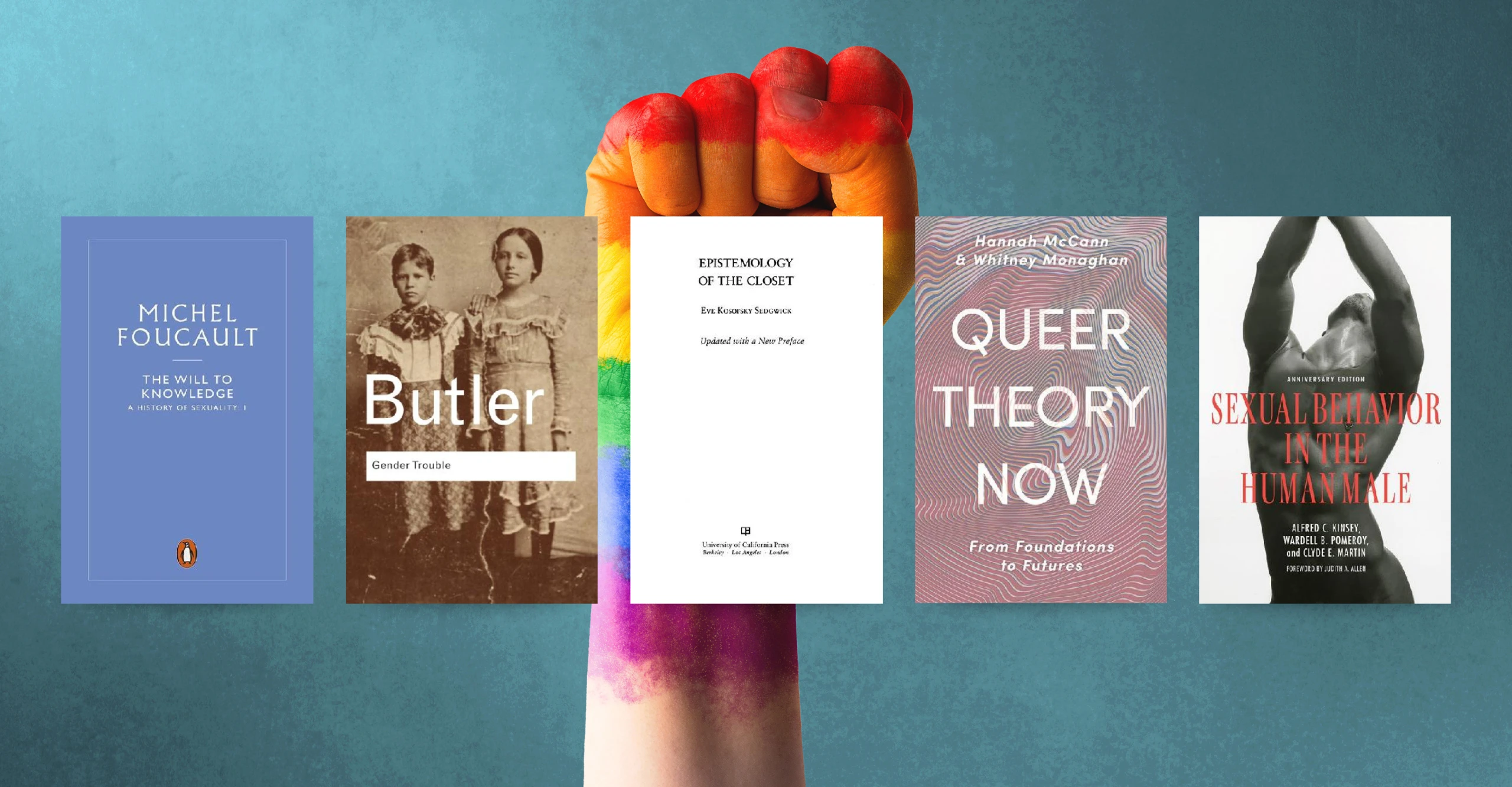A timeline of queer academia in 5 key texts
Since the transformative concepts introduced by the Kinsey Reports in the 1940s, queer academia has become a recognised discipline, with foundational concepts expanded, critiqued and fine-tuned along the way.
We’ve hand selected five transformative texts that have helped challenge conventional norms, sparking meaningful change to empower greater acceptance of the LGBTQ+ community, all available on the Kortext platform!

1. Sexual Behavior in the Human Male by Alfred C. Kinsey, Judith A. Allen and Wardell B. Pomeroy (1948)
In what is widely considered the first major systematic series of studies into human sexuality, Kinsey and his colleagues aimed to fill a significant ‘gap in our knowledge’ using experimental methodology to demonstrate sexuality as a continuum as opposed to a binary view of ‘gay’ or ‘straight’.
In the second volume of what we now know as the Kinsey Reports, Sexual Behavior in the Human Female, researchers proposed findings that challenged the commonly held assumptions of women as inherently less interested in their sexuality than men.
In its time, Kinsey’s work was deeply controversial, being framed as undermining the cultural and societal norms, with many condemning the research as immoral and encouraging promiscuity.
Researchers reflect on Kinsey’s research with appreciation for it’s impact on destigmatising sexuality and introducing it as a natural part of human behaviour, whilst also recognising the methodological limitations of his work that are brought to light in the present day.
2. The History of Sexuality, Vol 1 by Michel Foucault (1976)
Foucault introduces the ‘repressive hypothesis’ into the emerging field of sexuality theory. His thesis suggests that rather than repressing sexuality, society has actually produced an increasing amount of discourse about it, shaping attitudes surrounding sexual behaviours in the present day.
Foucault traces attitudes to sexuality from the 1700s to the present day, and the gradual invention of the norms that identify sexual acts and behaviours as either ‘normal’ or ‘deviant’.
By suggesting the transformative perspective that current norms are constructed and perpetuated by societal powers and agendas, Foucault’s works challenge the idea of ‘deviant’ sexualities by instead contesting the foundation that these norms are built on as a whole.
3. Gender Trouble by Judith Butler (1990)
Butler’s perspectives continue to reject binary sexuality but take these theories a step further, rejecting the concept of biological sex as a factual entity, instead suggesting that our own assumptions about bodies, gender and sex are created and interpreted through ‘performativity’.
Butler indicates that there is no ‘authentic’ gender, and instead the way we act brings about our gender based on socially understood norms.
Butler suggests that individuals see the world in the context of a ‘heterosexual matrix’ that assumes alignment between sex, desire and gender that marginalises queer identities and enforces compulsory heterosexuality.
These concepts are consolidated and expanded in a series of further publications, however Gender Trouble brought these transformative ideas into the public domain and continues to be a key text in queer academia to this day.
4. Epistemology of the Closet by Eve Kosopsky Sedgewick (1990)
The closet is described as a central organising system trapping LGBTQ+ individuals in a no-win bind where they can either ‘come out’ and be exposed to discrimination or remain ‘in the closet’ where they are not able to be openly themselves.
Framing the LGBTQ+ experience in such a way emphasises the power embedded within structures of knowledge exchange that shape what is allowed to be known and yet unknowingly produces ignorance and prejudice.
Epistemology of the Closet has had a huge and resounding impact across disciplines with Sedgewick’s theories of social knowledge exchange developing practical applications in law, sociology and even geography.
Sedgewick’s further publications dive deeper into the intersections of sexuality, power and social structures to expand on theories and concepts proposed in her earlier work.
5. Queer Theory Now by Hannah McCann and Whitney Monaghan (2019)
A different format to the other listed titles, Queer Theory Now provides a comprehensive introduction to queer academia that is accessible to newcomers, whilst balancing depth of knowledge for academics.
Providing a valuable learning resource for students, this title includes critically evaluated case studies, definitions for comprehensive understanding and an ongoing future-facing viewpoint that encourages readers to consider the direction of research and perspectives.
Looking to the future of queer theory, McCann and Monaghan predict an increase in politically charged perspectives and a drive to find where queer theory intersects with other disciplines or applies to other demographic communities.
The authors encourage readers to picture utopian futures that are outside of normative life scripts and how current and future queer theory paves the way to this ultimate goal.
From the early works that pioneered the empirical study of sexuality, to recent future-facing perspectives, we hope we’ve sparked your interest with our Pride picks. We’re proud to support inclusive learning at Kortext and would like to wish you a Happy Pride 2025!
Want to access LGBTQ+ content for free? We’ve curated a hand-picked selection of free-to-access titles from the Kortext Open Resources Collection. Find out more in our recent blog.






